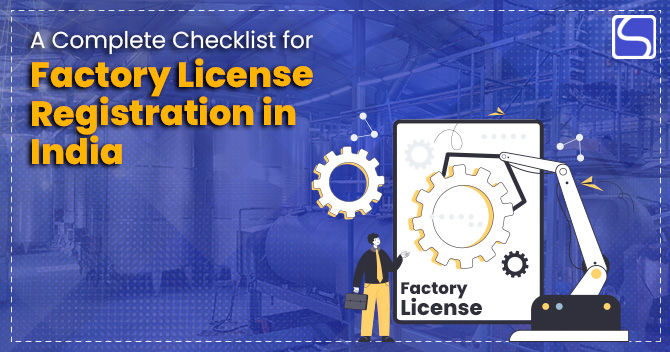How to Start Masala Factory in India?

Priyanka Bajpayee | Updated: Jun 08, 2022 | Category: Factory Licence
India is also known as “The Land of Spices,” and the splendours of Indian Masala (spices) are well-known throughout the globe. India holds a prominent position in the international trade in Masala. Indian spices are famous for their aroma and flavour in local and international markets. If you want to start a Masala factory in India, then in this article, you will get complete information on how to start Masala Factory in India.
Table of Contents
Masala Factory in India – An Overview
India produces almost all the known Masala (Spices) and is the highest exporter of this commodity. As Masala (spice) is a mass consumption item primarily used in edible products, its continual demand is increasing quite steadily.
With changing lifestyles and changes in food habits[1], and the increase in income level, the use of Masala has risen. Also, there is a requirement for various procedures and the need to start a Masala factory in India.
How starting Masala Factory in India is Profitable?
In India, the Masala (spice) is included in the category of the most basic ingredients. It is one of the essential food items in kitchens. In India, where the population density is high, food consumption is also significant.
Masala(Spice) blends and branded spices are more beneficial than organic and unbranded spices. Therefore, starting a Masala factory in India is always profitable as an investment option for entrepreneurs.
Steps to be kept in mind before starting a Masala Factory in India
Below mentioned are the steps required to be followed before starting a Masala Factory in India.
Understanding the Masala products: As a potential Masala( spice) business owner, the first step is to understand the Masala and Masala-related products.
Masala( spice) products can be categorized into three types:
- Whole spices: Cloves, chilies, cumin powder, cinnamon, mustard, poppy, saffron, turmeric, and bay leaf, are among the well-known whole spices.
- Spice powder: Pepper, cardamom, chili, ginger, turmeric, coriander, and fenugreek powders are the common spice powder.
- Specific spices for the recipe: Curry masala, meat masala, fish curry masala, sambar, rasam, and instant pickles are used.
Also, it is essential to know the buying habit that will help you determine the category of spices (Masala) you want to deal with. Moreover, you can also consider including organic spices.
Prepare a business plan
Before starting any business, including a Masala factory business, it is essential to prepare a business plan. It is one of the important activities before starting the masala factory business. Having one in place will help you:
Furthermore, a Business plan defines your business’s goals and desired outcomes. It’ll also help you recognize the significant milestones needed to reach them.
Here are some key elements that your Masala (Spice) business plan should include:
- Market Search
- Competitive analysis
- Marketing plan
- Social Media and Sales strategy
- Financial projections
Planning accordingly and doing research will better prepare you for success.
Understand the Procedure for making
The exact process of making masalas (Spices) has to be understood. The process involved in masala production comprises:
- Cleaning of unground spices
- Drying the unground spices
- Roasting the spices
- The spices are ground or crushed
- Sorting the spices
- Making the Masala ready and spices
If you are making ready masalas, making the ready Masala involves mixing the correct proportion of different spices and masalas before packaging the prepared Masala.
Understanding the fundamental process of masala manufacturing will allow entrepreneurs to start their businesses efficiently and effectively.
Budget and layout of The Business Plan: Once you decide on the category and process of spice making, the next step is to create a budget plan. Finally, it’s best to lay out the costs needed to get a spice business up & running.
A business budget plan generally includes two types of costs — fixed capital and working capital costs. There are also government subsidy schemes to assist you in getting your business off the ground. Here are some of the most popular ones:
Choose Appropriate Location and Space
One of the most significant advantages of the masala industry is that it can be run from any place, such as a home or a garage and even from a facility specifically designed to manufacture and pack spices. Therefore, the space requirements for the operation aren’t too large, and space between 500 and 1000 square feet is adequate to set up the equipment and begin the masala venture.
If a place is chosen other than home, the area and the availability of resources like electricity and water should be inspected. The site must also be accessible for transporting materials between and to the manufacturing unit and customers when entrepreneurs plan to sell their goods from the manufacturing facility. Additionally, renting a commercial area is far more practical for entrepreneurs than buying it.
Registration for starting Masala Factory in India
If you want to start Masala Factory in India, it is essential to comply with the following requirements-
- Business Registration
- To start a Masala factory in India, First, you must get an official business registration with proper branding and name.
- Before Business registration, it is essential to name the business. Finding the correct name is vital to the success of any business and the Masala (spice) industry is no different.
- Trade License: Trade licenses are a certificate that permits a person to start a particular business in a specific zone. This is why getting a trade license from local authorities is essential.
- GST Registration: GST registration allows the owner to identify the business’s status and provides various possibilities to the company. This is why it is required for every business to get the GST Registration.
- MSME Registration: Before starting a Masala Factory in India, the person can register the business by MSME Registration, which will allow you to get access to the grant and facility to government officials.
- FSSAI Registration: Masala (spice powder) is a food item, and FSSAI registration[1] for every food-related industry is required.
- IEC code: IEC Code is required for those Masala factories that import or export products and services from India.
- BIS certificate
- It is necessary to apply to obtain BIS certification, which includes ISI specifications for ground Masala spices.
- Blackhole and Ground ISI-1798-1961
- Chili Powder ISI-2445-1963
- Coriander Powder ISI-2444-1963
- Curry leaves ISI-1909-1961
- Spices and Condiment ISI-1997-1961 Samples and Test Methods
- Yellow powder ISI-2446-1963
- ISO Certification: ISO certification is required for selling the Masala products as it confirms that the products and services exceed the buyers’ expectations and offer outstanding satisfaction to them. Therefore, businesses need to attain ISO certification.
Purchase The Equipment and Raw materials
Equipment and raw material are essential to the masala business and must be purchased to begin your business. The raw material comprises ground spices purchased in bulk like chili and cumin, turmeric, clove, coriander, and fennel.
The tools required to start a masala factory include:
- Grinding machines, like
- Pulverizer
- Hammer mill
- Grinder and spice mill
- Pounding machine
- Compressor
- Disintegrator
- Sieves
- Weighing machine
- Packaging machine
- Roasting equipment or stove top that has gas connection and vessels to roast
- Machine for sealing heat
- Roster
- Packaging pouches
Promote your business to connect with your audience
When we talk about branding the business, the first step is to start sharing your brand story. This could include:
- The story behind how you begin the business
- Where do you get your ingredients, and what is the process of manufacturing the Masala.
Consider them your unique selling points, which will ultimately set your Masala factory business apart from other similar companies.
Conclusion
Conclusively, we can say that all the above-mentioned steps are the essential steps that will help the potential owner understand the process of starting a masala factory in India and help them kickstarting it successfully. It is always recommendable to approach the professional service provider for any business-related queries such as a business plan or to obtain the licenses and registrations, etc. entrepreneurs can always approach Corpbiz for the services and assistance.
Read our Article:FSSAI License for Energy Drinks in India: A Complete Guide














